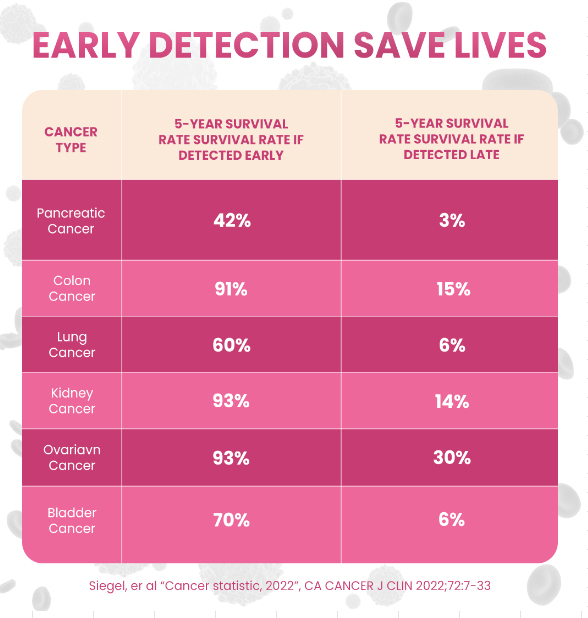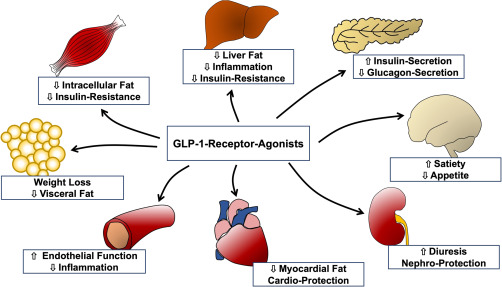No products in the cart.
Genomics
Molecular PGX Panels
Comprehensive Panel
Molecular PGx’s Comprehensive Pharmacogenetics Gene Variation Panel includes genes most relevant and most common genes covering more than 90% of the drugs utilized for patient care.
Genes Tested:
ABCB1, ABCG2, ADRA2A, ADRB2, ANKK1, APOE, C11orf65, COMT, CYP1A2, CYP2B6, CYP2C, CYP2C8, CYP2C9, CYP2C19, CYP2D6, CYP3A4, CYP3A5, CYP4F2, DPYD, DRD2, EPHX1, F2, F5, GRIK4, HTR1A, HTR2A, HTR2C, ITGB3, MTHFR, NUDT15, OPRM1, SLC6A2, SLCO1B1, TPMT, UGT2B15, VKORC1

Oncology Panel
Get Genetic Information For Cancer Treatment Patients With Medications
Molecular PGx’s Oncology Pharmacogenetics Gene Variation Panel offers critical genetic information for patients undergoing cancer treatment with medications including: Avatrombopag, belinostat, capecitabine, eltrombopag, erdafitinib, fluorouracil, fluorouracil topical, gefitinib, irinotecan, mercaptopurine, nilotinib, pazopanib, Sacituzumab govitecan-hziy, tamoxifen, thioguanine
Genes Tested:
CYP1A2, CYP2B6, CYP2C8, CYP2C9, CYP2C19, CYP2D6, CYP3A4, CYP3A5, DPYD, MTHFR, NUDT15, TPMT

Cardioiogy Panel
Get genetic information to optimize treatment for cardiological conditions
The Cardio Pharmacogenetics Gene Variation Panel by MolecularPGx furnishes genetic findings to enhance treatment for cardiovascular conditions by identifying the most suitable medication for your needs. Common medications covered include: atorvastatin, carvedilol, clopidogrel, Fluvastatin, hydralazine, lovastatin, pitavastatin, pravastatin, propafenone, rosuvastatin, simvastatin, warfarin
Genes Tested:
ABCB1, ABCG2, APOE, CYP2C, CYP2C8, CYP2C9, CYP2C19, CYP2D6, CYP3A4, CYP3A5, CYP4F2, F2, F5, ITGB3, MTHFR, SLCO1B1, VKORC1

Pain Management Panel
Chronic Pain
- Refusing “life-saving” treatments to patients pushes them towards “doctor-shopping,” unwarranted surgeries, and, at its worst, contributes to 1 out of 10 suicides in the United States.
Opioid Abuse
- Efforts labeled as “life-saving” to safeguard patients at risk of prescription opioid abuse have inadvertently pushed them towards illicit drugs, illegal fentanyl, and other detrimental behaviors.
Get Patient Specific Reactions For Common Pain Management Medications
The Molecular PGx Pain Management Pharmacogenetics Gene Variation panel examines individual patient reactions to the most frequently prescribed pain management medications, encompassing: Carisoprodol, celecoxib, codeine, flurbiprofen, hydrocodone, ibuprofen, meloxicam, methadone, oliceridine, piroxicam, tramadol
Learn MoreGenes Tested:
COMT, CYP1A2, CYP2B6, CYP2C9, CYP2C19, CYP2D6, CYP3A4, CYP3A5, OPRM1

Psychotropic Panel
What Is It For?
The Psychotropic test assesses the impact of your genetic composition on the effectiveness of medications typically prescribed for depression, anxiety, ADHD, and related mental health issues. It furnishes your clinician with insights into whether certain medications may necessitate dosage modifications, exhibit reduced efficacy, or pose a heightened risk of side effects due to your genetic profile.
Get Genetic Information For A Wide Variety of Psychotropic Medications
The results from Molecular PGx’s Psychotropic Pharmacogenetics Gene Variation Panel provide genetic insights and treatment recommendations for a diverse range of psychotropic medications, comprising: Amitriptyline, amoxapine, aripiprazole, aripiprazole lauroxil, atomoxetine, brexpiprazole, citalopram, clomipramine, clozapine, desipramine, diazepam, doxepin, duloxetine, escitalopram, fluvoxamine, iloperidone, imipramine, lofexidine, nortriptyline, paroxetine, perphenazine, protriptyline, risperidone, sertraline, thioridazine, trimipramine, venlafaxine, vortioxetine
Learn MoreGenes Tested:
ADRA2, ANKK1, COMT, CYP1A2, CYP2B6, CYP2C9, CYP2C19, CYP2D6, CYP3A4, CYP3A5, DRD2, EPHX1, GRIK4, HTR2A, HTR2C, MTHFR, OPRM1, UGT2B15

Weight Loss Panel
What Is It For?
Our Weight loss PGx panel test for variations of most common drug metabolizers, transporters, and receptors that actively participate in drug metabolism and transportation, processing broad spectrum of diabetic and weight loss drugs used for diabetes and weight loss treatment.
Mechanisms of action/side effects
Glucagon-like peptide 1 receptor agonists (GLP-1-RAs) lower blood glucose through different mechanisms. They represent the antidiabetic class with the most pronounced weight reduction and have the below profound effects on visceral and ectopic fat and other organs.
HDL PGx weight loss gene variation panel can help physicians and other clinicians identify the most effective drug for each individual patient. This will not only help find which drug may be most effective before treatment starts, but also minimize the risk of adverse reactions and hospitalizations.
Get Genetic Information For A Wide Variety of Weight Loss Medications
Weight Loss PGx results offer genetic information for patients taking some common diabetic and weight loss medications including: Ozempic, Munjaro, Wegovy, Trulicity, Byetta, Victoza, Saxenda
Learn MoreGenes Tested:
GLP-1R, DDP4, TCF7L2, CNR1, SLC5A2, CYP2C9, SLCO1B1, UGT1A9.

Genetic Testing FAQ's

Genetic testing looks for changes, sometimes called mutations or variants, in your DNA. Genetic testing is useful in many areas of medicine and can change the medical care you or your family member receives. For example, genetic testing can provide a diagnosis for a genetic condition such as Fragile X or information about your risk to develop cancer.
There are many different kinds of genetic tests. Genetic tests are done using a blood or spit sample and results are usually ready in a few weeks. Because we share DNA with our family members, if you are found to have a genetic change, your family members may have the same change. Genetic counseling before and after genetic testing can help make sure that you are the right person in your family to get a genetic test, you’re getting the right genetic test, and that you understand your results.
- To learn whether you have a genetic condition that runs in your family before you have symptoms
- To learn about the chance a current or future pregnancy will have a genetic condition
- To diagnose a genetic condition if you or your child has symptoms
- To understand and guide your cancer prevention or treatment plan
After learning more about genetic testing, you might decide it’s not right for you. Some reasons might be that it’s not relevant to you or won’t change your medical care, it’s too expensive, and the results may make you worried or anxious.
Clinical genetic tests are different from direct-to-consumer (DTC) genetic tests, which can give some information about medical and non-medical traits. Clinical genetic tests are ordered by your doctor for a specific medical reason. DTC tests are usually purchased by healthy individuals who are interested in learning more about traits like ancestry, responses to medications, or risk for developing certain complex conditions. DTC test results can be used to make decisions about lifestyle choices or provide issues to discuss with your doctor. However, DTC tests cannot definitely determine whether or not you will get a disease and should not be used alone for decisions about your treatment or medical care.
There are many different kinds of genetic tests. There is no single genetic test that can detect all genetic conditions. The approach to genetic testing is individualized based on your medical and family history and what condition you’re being tested for.
Single gene testing. Single gene tests look for changes in only one gene. Single gene testing is done when your doctor believes you or your child have symptoms of a specific condition or syndrome. Some examples of this are Duchene muscular dystrophy or sickle cell disease. Single gene testing is also used when there is a known genetic mutation in a family.
Panel testing. A panel genetic test looks for changes in many genes in one test. Genetic testing panels are usually grouped in categories based on different kinds of medical concerns. Some examples of genetic panel tests are low muscle tone, short stature, or epilepsy. Panel genetic tests can also be grouped into genes that are all associated with higher risk of developing certain kinds of cancer, like breast or colorectal (colon) cancer.
Large-scale genetic or genomic testing. There are two different kinds of large-scale genetic tests.
- Exome sequencing looks at all the genes in the DNA (whole exome) or just the genes that are related to medical conditions (clinical exome).
- Genome sequencing is the largest genetic test and looks at all of a person’s DNA, not just the genes.
- Positive – the test found a genetic change known to cause disease.
- Negative – the test did not find a genetic change known to cause disease. Sometimes a negative result occurs when the wrong test was ordered or there isn’t a genetic cause for that person’s symptoms. A “true negative” is when there is a known genetic change in the family and the person tested did not inherit it. If your test results are negative and there is no known genetic change in your family, a negative test result may not give you a definite answer. This is because you might not have been tested for the genetic change that runs in your family.
- Uncertain – a variant of unknown or uncertain significance means there isn’t enough information about that genetic change to determine whether it is benign (normal) or pathogenic (disease causing).
A good way to think about genetic testing is as if you’re asking the DNA a question. Sometimes we don’t find an answer because we weren’t asking the right question or science just didn’t have the answer yet.
- Chromosomes. DNA is packaged into structures called chromosomes. Some tests look for changes in chromosomes rather than gene changes. Examples of these tests are karyotype and chromosomal microarrays.
- Gene expression. Genes are expressed, or turned on, at different levels in different types of cells. Gene expression tests compare these levels between normal cells and diseased cells because knowing about the difference can provide important information for treating the disease. For example, these tests can be used to guide chemotherapy treatment for breast cancer.

